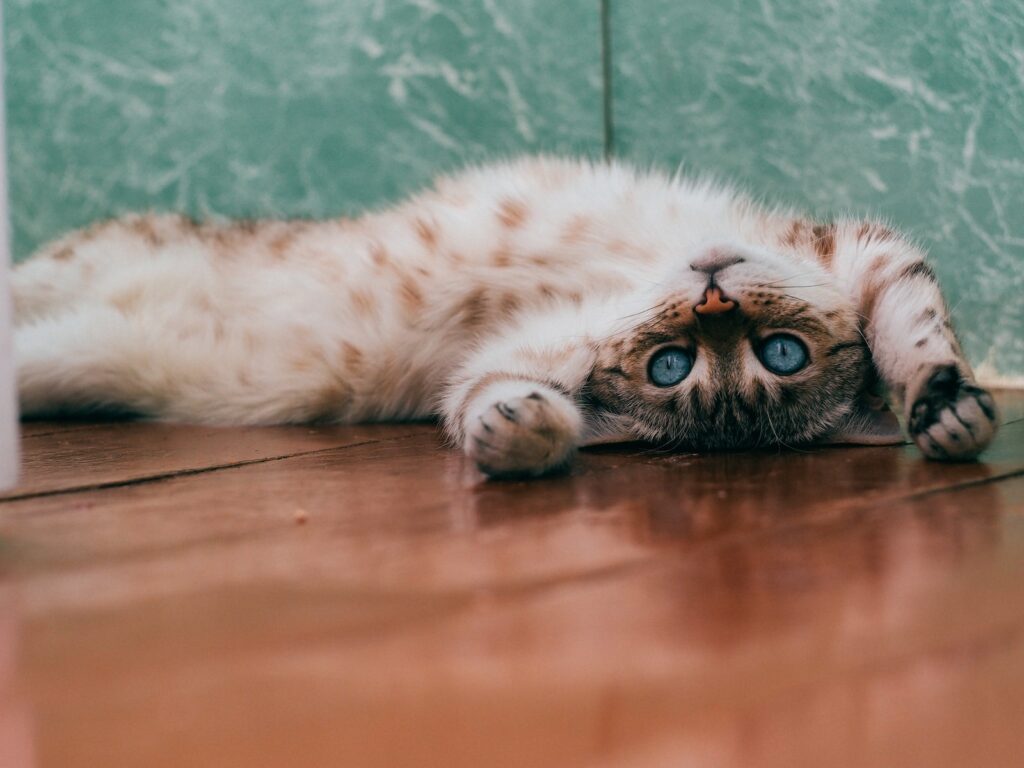Can Cats Eat Sushi? — No, They Can’t
Sushi is a delightful traditional Japanese dish that consists of vinegared rice accompanied by various toppings, such as raw fish, seafood, or vegetables. While it has gained immense popularity worldwide, it is essential to consider our feline friends’ well-being before sharing our favorite sushi rolls with them. Unfortunately, cats should not consume sushi due to several compelling reasons.
Is It Safe for Kittens to Consume Sushi?
Just like adult cats, kittens should also avoid consuming sushi. Their young digestive systems are particularly sensitive and may not be adequately equipped to handle certain ingredients commonly found in sushi. It is safer to stick to a specially formulated diet for kittens, ensuring their nutrition requirements are met.
Risks Associated with Feeding Sushi to Kittens
Feeding sushi to kittens can lead to various risks that may compromise their health and well-being. The following are some potential dangers:
- Gastrointestinal Upset: Kittens may experience stomach discomfort, vomiting, and diarrhea due to the unfamiliar ingredients and spices present in sushi.
- Bacterial Contamination: Raw fish used in sushi can harbor harmful bacteria like Salmonella and E. coli, leading to severe infections in kittens.
- Mercury Toxicity: Some fish varieties used in sushi, such as tuna and mackerel, contain high levels of mercury. Kittens are more vulnerable to the toxic effects of mercury, which can damage their nervous systems.
Why Sushi is Not Recommended for Cats
Unsuitable Ingredients:
Sushi often contains ingredients like soy sauce, wasabi, and pickled vegetables that are not suitable for feline consumption. Soy sauce contains high levels of sodium, which can be harmful to cats, while wasabi and pickled vegetables may cause gastrointestinal irritation.
Potential Allergic Reactions:
Cats can develop allergies to certain seafood ingredients commonly found in sushi, such as shellfish. Consuming sushi can trigger allergic reactions in cats, including itching, skin rashes, and even difficulty in breathing.
Risk of Parasitic Infections:
Raw fish used in sushi can expose cats to parasitic infections like parasites. These parasites can cause digestive issues, nutritional deficiencies, and in severe cases, organ damage. It is crucial to cook fish thoroughly before offering it to your cat.
Known Health Issues in Cats from Consuming Sushi
Consuming sushi can lead to various health issues in cats, including:
- Gastroenteritis: Cats may develop inflammation of the stomach and intestines, leading to vomiting, diarrhea, and abdominal pain.
- Methylmercury Poisoning: High levels of methylmercury in certain fish used in sushi can lead to mercury poisoning in cats, causing neurological problems and kidney damage.
- Foodborne Illness: Cats are susceptible to foodborne illnesses from contaminated sushi, resulting in severe gastrointestinal distress and dehydration.
What to Do If a Cat Has Consumed Sushi?
- Monitor for Symptoms: Keep a close eye on your cat for any signs of digestive upset, such as vomiting or diarrhea.
- Provide Fresh Water: Ensure your cat has access to clean, fresh water to stay hydrated.
- Contact a Veterinarian: If your cat shows severe symptoms or if you are unsure about the potential risks, it is advisable to consult a veterinarian for professional guidance.
Safe Alternatives to Sushi for Cats
While sushi may not be suitable for cats, there are plenty of alternative treats that can satisfy their cravings without compromising their health. Consider offering cooked fish like plain, well-cooked salmon or white fish, which provide essential nutrients without the risks associated with raw fish. Additionally, there are specially formulated cat treats available in the market that are both delicious and safe for feline consumption.
Conclusion
In conclusion, cats should not eat sushi due to the potential risks it poses to their health. The unsuitable ingredients, risk of bacterial contamination, possibility of allergic reactions, and the prevalence of parasite infections make sushi unsuitable for feline consumption. It is crucial to prioritize our cats’ safety and well-being by feeding them a balanced diet specifically designed for their nutritional needs. By avoiding sushi and opting for safe alternatives, we can ensure our feline companions live long, healthy lives.






